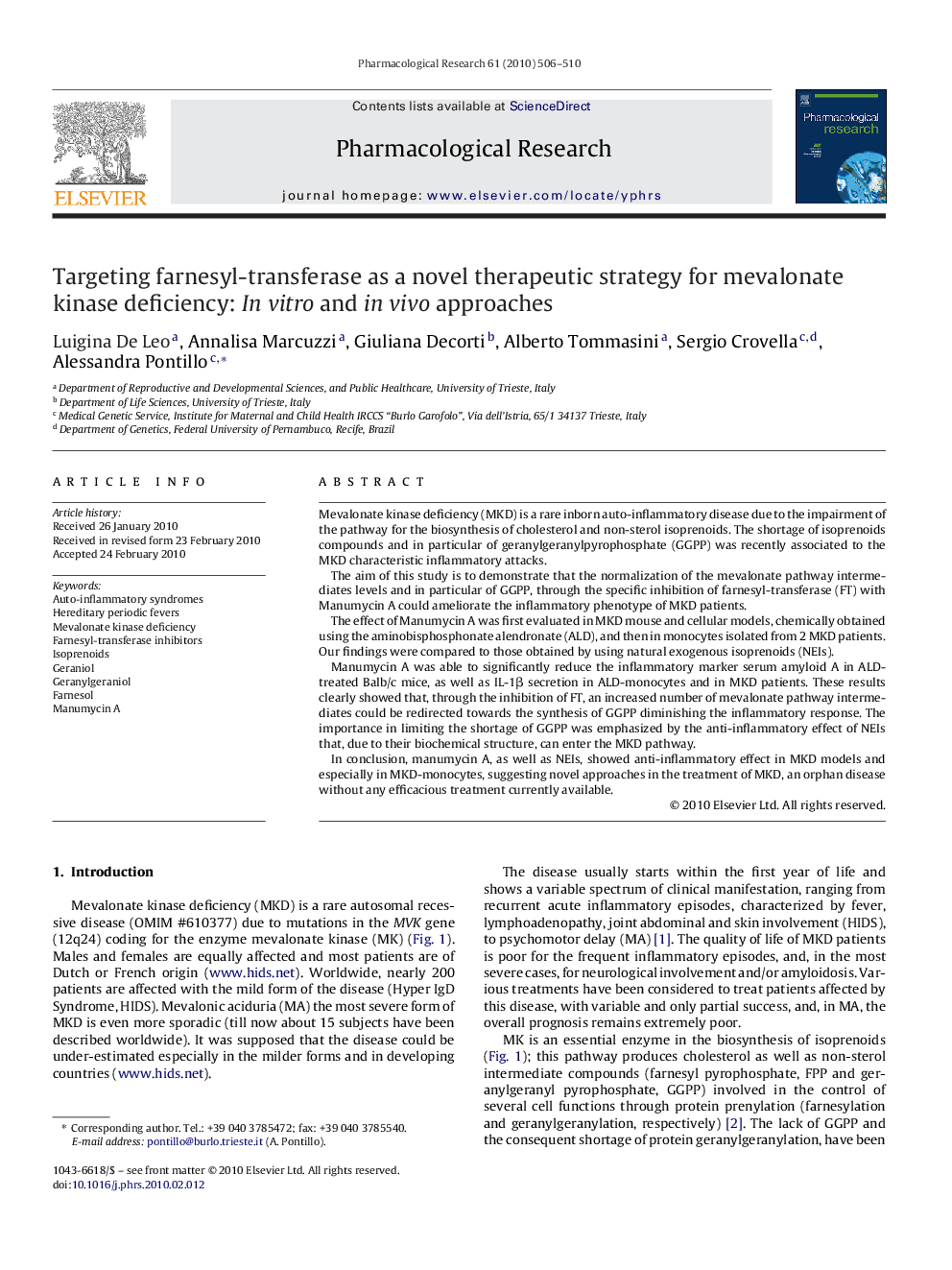| Article ID | Journal | Published Year | Pages | File Type |
|---|---|---|---|---|
| 5843279 | Pharmacological Research | 2010 | 5 Pages |
Mevalonate kinase deficiency (MKD) is a rare inborn auto-inflammatory disease due to the impairment of the pathway for the biosynthesis of cholesterol and non-sterol isoprenoids. The shortage of isoprenoids compounds and in particular of geranylgeranylpyrophosphate (GGPP) was recently associated to the MKD characteristic inflammatory attacks.The aim of this study is to demonstrate that the normalization of the mevalonate pathway intermediates levels and in particular of GGPP, through the specific inhibition of farnesyl-transferase (FT) with Manumycin A could ameliorate the inflammatory phenotype of MKD patients.The effect of Manumycin A was first evaluated in MKD mouse and cellular models, chemically obtained using the aminobisphosphonate alendronate (ALD), and then in monocytes isolated from 2 MKD patients. Our findings were compared to those obtained by using natural exogenous isoprenoids (NEIs).Manumycin A was able to significantly reduce the inflammatory marker serum amyloid A in ALD-treated Balb/c mice, as well as IL-1β secretion in ALD-monocytes and in MKD patients. These results clearly showed that, through the inhibition of FT, an increased number of mevalonate pathway intermediates could be redirected towards the synthesis of GGPP diminishing the inflammatory response. The importance in limiting the shortage of GGPP was emphasized by the anti-inflammatory effect of NEIs that, due to their biochemical structure, can enter the MKD pathway.In conclusion, manumycin A, as well as NEIs, showed anti-inflammatory effect in MKD models and especially in MKD-monocytes, suggesting novel approaches in the treatment of MKD, an orphan disease without any efficacious treatment currently available.
